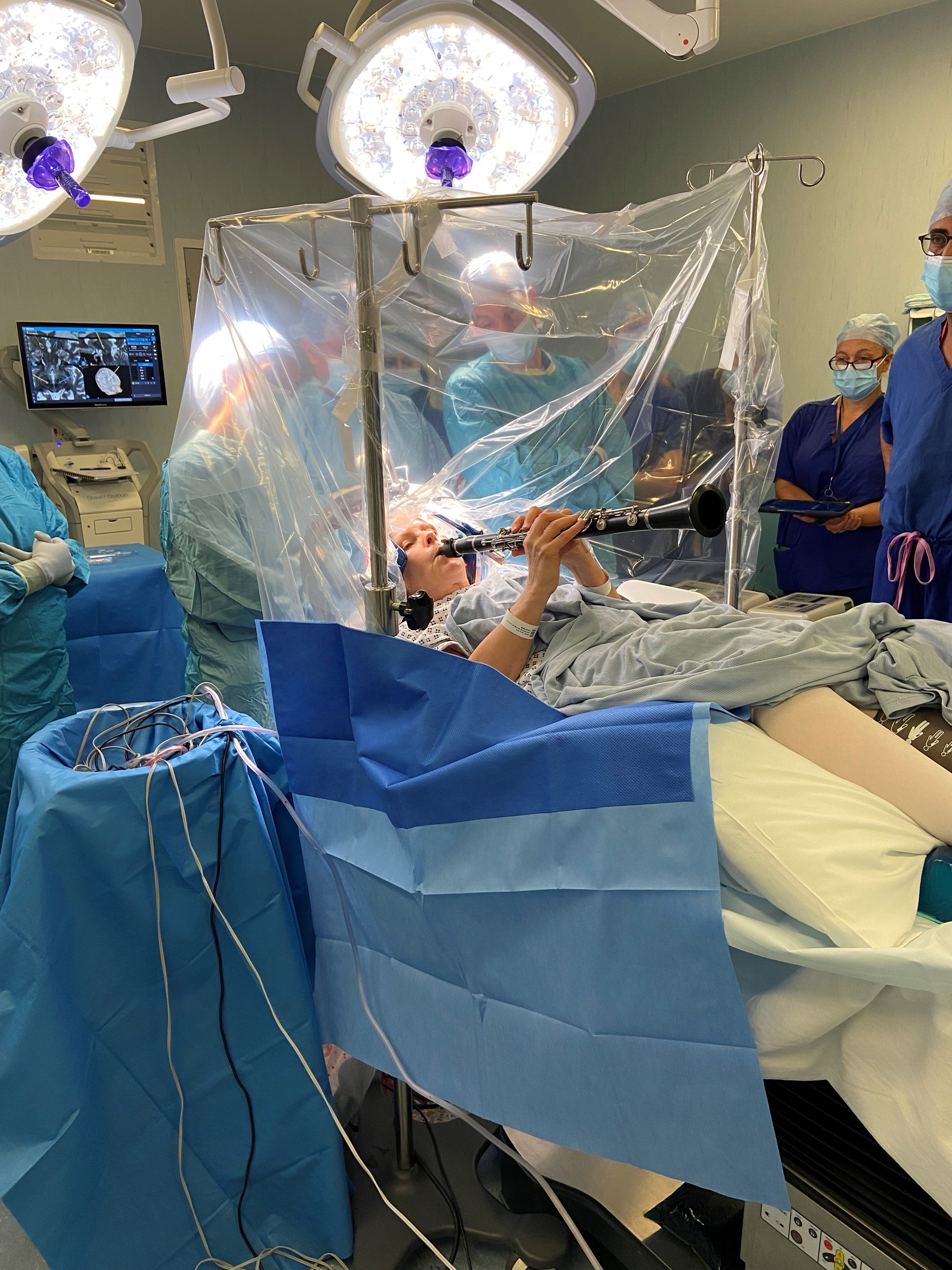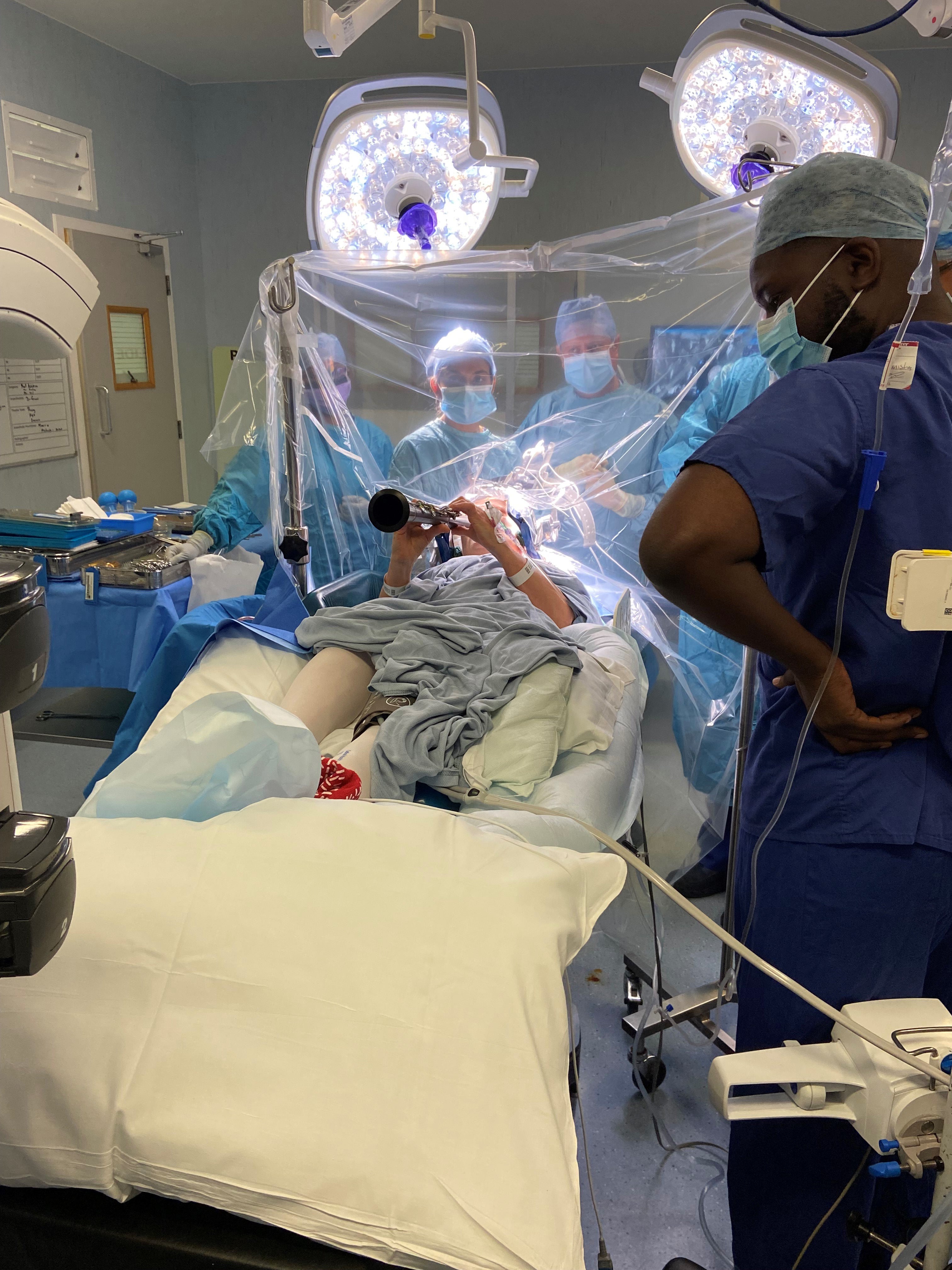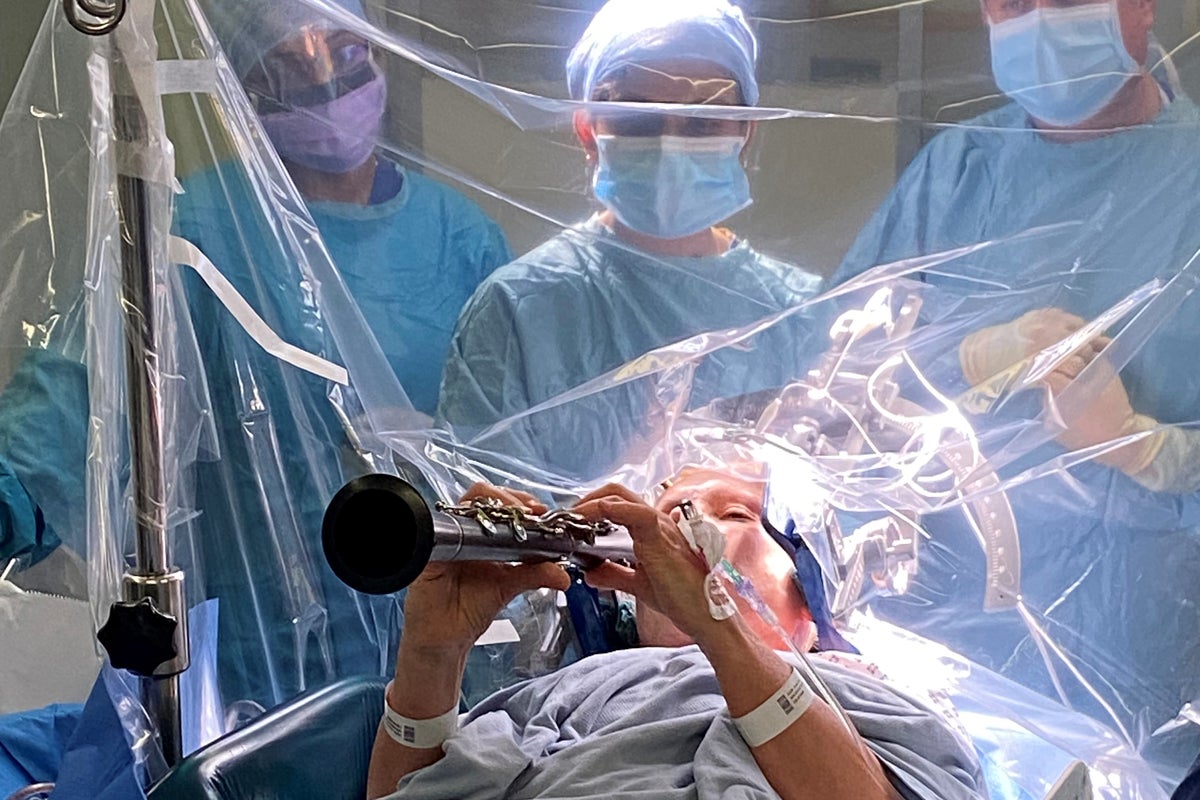A woman living with Parkinson’s disease played her clarinet while undergoing brain stimulation, offering surgeons immediate, audible evidence of the procedure’s success.
Denise Bacon, 65, from Crowborough in East Sussex, experienced instant improvement in her finger movements as the electrical current was delivered.
The retired speech and language therapist underwent deep brain stimulation (DBS) to combat symptoms of Parkinson’s, including bradykinesia and muscle stiffness.
Diagnosed in 2014, the condition had previously affected her ability to walk, swim, dance, and play her instrument.
During a four-hour operation at King’s College Hospital, Keyoumars Ashkan, a professor of neurosurgery, performed DBS to help relieve symptoms while Ms Bacon stayed awake.
DBS is a surgical procedure using electrodes implanted in the brain and is suitable for some patients with disorders such as Parkinson’s.
The DBS led to instant results on the operating table. Denise had immediate improvement in her fingers, allowing her to play the clarinet easily.

Prof Ashkan, said: “Holes half the size of a five pence piece were made in Denise’s skull after a frame with precise co-ordinates was placed on Denise’s head, acting as a sat nav to guide us to the correct positions within the brain to implant the electrode.
“Once the electrodes were in place on the left side of Denise’s brain, the current was switched on and an immediate improvement was noted in hand movements on her right side.
“The same happened on her left side when we implanted electrodes on the right side of her brain.
“As a keen clarinettist, it was suggested Denise bring her clarinet into the operating theatre to see whether the procedure would improve her ability to play, which was one of Denise’s main goals for the surgery.
“We were delighted to see an instant improvement in her hand movements, and therefore her ability to play, once stimulation was delivered to the brain.”

Ms Bacon, who played clarinet in the East Grinsted Concert Band until she had to stop five years ago due to her Parkinson’s symptoms, was given a local anaesthetic to numb her scalp and skull.
She said: “I remember my right hand being able to move with much more ease once the stimulation was applied, and this in turn improved my ability to play the clarinet, which I was delighted with.
“I’m already experiencing improvements in my ability to walk, and I’m keen to get back in the swimming pool, and on the dance floor to see if my abilities have improved there.”
Ms Bacon opted for a rechargeable type of pulse generator battery that is implanted in her chest, which can last up to 20 years before it requires replacing.
This monitors her brain activity and can help automatically adjust electrical stimulation when needed.
Prof Ashkan said: “Deep brain stimulation is one of the most effective, evidence-based and long-lasting therapies to control the motor symptoms of Parkinson’s disease, improving tremor, stiffness and slowness of movement.
“Modern advances in DBS technology are now allowing us to personalise the therapy to the needs of our patients, with a positive impact on their quality of life.”


